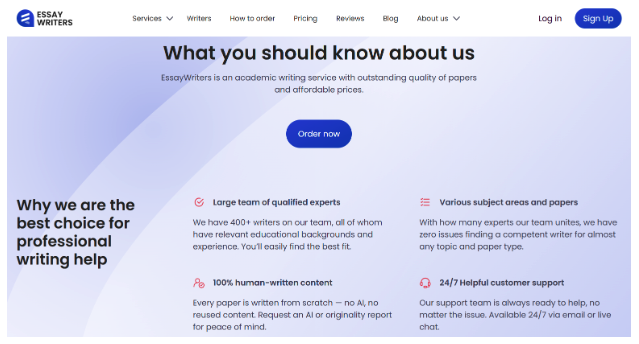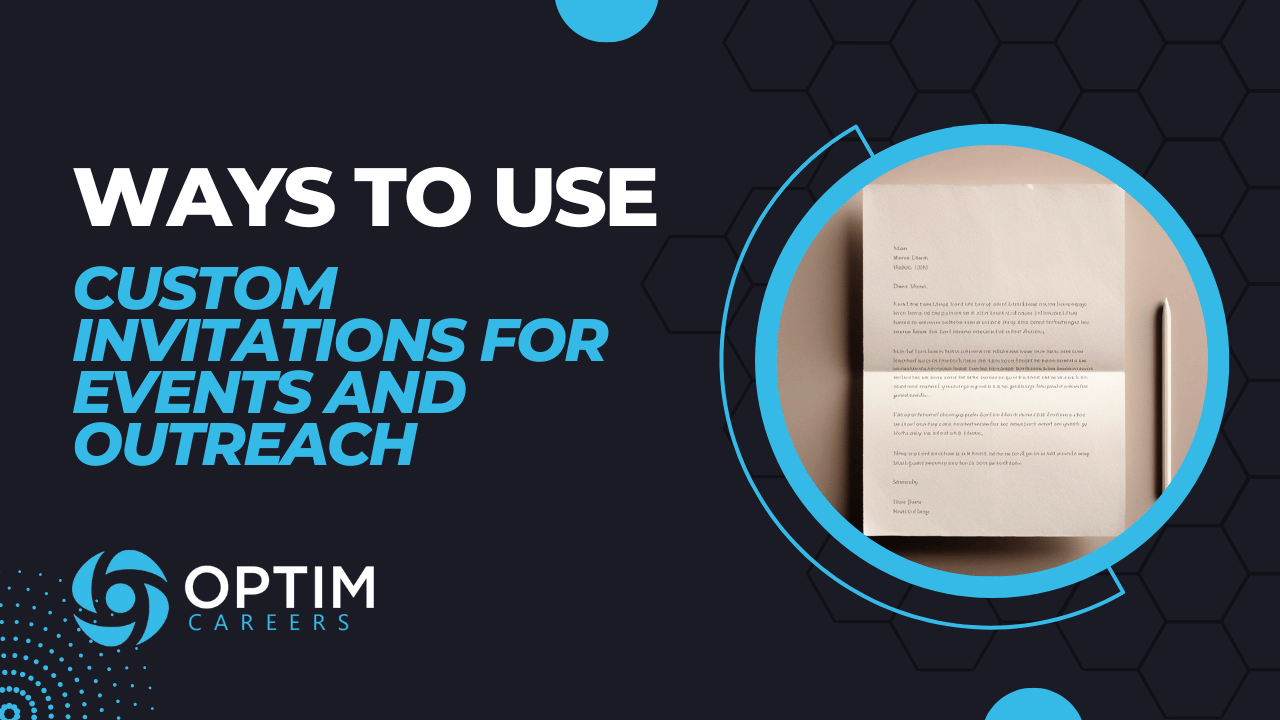Why Am I Not Getting Hired [Roadblocks at Each Stage of Hiring]
We can only take so much rejection before we start asking ourselves why we’re not getting hired. Job searching involves a lot of silence and rejection and before long we start doubting ourselves.
While I do believe there are some things that you can change and control, I also think there’s a lot of BS out there that tends to overcomplicate things for job seekers. I’ve heard “experts” cite reasons for not getting hired such as not following up. Look, I’ve been in recruitment for over a decade and if I’m hiring you, you don’t need to follow up with me. I’m following up with you. It’s not because you didn’t follow up with me after an interview.
I’ve heard things like you’re not networking. While networking can certainly help in some situations, I know thousands of people who found new jobs without networking. I find networking is usually a scapegoat used by coaches when they don’t know how else to help someone. Clearly, you’re not networking enough.
So, for today, let’s keep it simple.
I’m going to write about the reasons I’ve seen that caused people not to get hired. I’m going to break those into items that you can control and change, and items that you cannot control but should be aware of. And, I’ll keep it as simple and factual as possible.
The reason you should pay attention to the things I’m going to discuss is that they will help you refine your job search strategy and the skills you need to land a job. Because job searching is a skill.
Understanding Job Search Stages and What Each Requires
To answer the question of why you are not getting hired, you have to look at which recruiting stage you’re not getting past. Don’t start with analyzing your job search strategies (the activities you’re performing). Instead, start with the root cause of the problem.
There are four recruitment stages I’m going to discuss throughout this article. I’ll write about why you may not be getting past each one, and ultimately why you’re not getting hired. Those four stages are:
Sourcing
Resume Review
Phone Screen
Interviews
Why I Am Not Getting Sourced By Recruiters
Sourcing is the recruitment process that involves searching for and identifying potential candidates. For the purposes of this section, we’re going to focus on processes where recruiters find you rather than you submitting a resume to them. Here are seven reasons that recruiters may not be sourcing you for their openings.
Your Online Presence Doesn’t Look Good
Seventy percent of employers state that they will look you up online (Harris Poll). If your social media profiles have anything disturbing on them, it could prevent you from getting an interview.
Furthermore, 87% of recruiters use LinkedIn to source candidates (CNBC). If you’re going to post content here, make sure it’s a good look. I can tell you as a recruiter there are several people that I would never consider for a job because of the content they post. And I’m not talking about posts that are lewd or even unprofessional. Rather, these are people who constantly view everything negatively or are abrasive in their comments with other individuals.
It’s best to keep things professional. If you haven’t done an online audit in a while, do one (you can use online services like FreePeopleSearch for that). Take a look at any content you share and ask yourself, “If someone else saw this, what kind of person would they think I am?” Are you someone who solves problems or someone who complains? Are you someone who lifts others up or tears them down?
No LinkedIn Profile
As I mentioned before, the vast majority of recruiters use LinkedIn to source many candidates. Ignoring this social media platform would be a mistake in today’s job search environment. LinkedIn is free and there’s no reason not to create a profile so recruiters can find you.
LinkedIn Profile Optimized for Wrong Jobs
There are few things more frustrating than having recruiters reach out to you for jobs that you are not interested in. I’ve seen this happen to my coaching clients time and time again. Recently I had a project accountant who was getting messages about accounts payable roles. I’ve had a recent MBA grad getting messages about machine operator roles instead of supply chain jobs. It happens all the time.
And it happens when we don’t understand LinkedIn SEO (search engine optimization). LinkedIn Recruiter operates like any other search engine. Recruiters put in keywords and LinkedIn spits out matches to them just like Google.
Most recruiters search by job title, seniority, industry, and then possibly a technical skill. Focusing on those things in your headline, about section, and experiences will ensure you appear in the recruiter searches that you want to be found for.
Resume Isn’t In the Right Databases
LinkedIn isn’t the only place that recruiters search for talent. They also use resume databases to find potential candidates. Many of us know about big resume databases that exist on sites like Indeed and Monster, but we often forget about the specialty sites. Many careers and job families have specialty job boards and resume databases that recruiters may turn to.
Having your resume published on one of these sites may lead to an increase in recruiters reaching out to you about potential jobs. One way to find niche job boards that allow you to post your resume is to go to Google and search “(Industry/Job Function) niche job board”.
You can also start with my list of 102 Best Job Search Websites.
Resume Doesn’t Have the Right Keywords
Posting your resume to a niche resume database is the first step, but similar to your LinkedIn profile, if you lack the right keywords, you won’t be found. Unlike when you apply to a specific job, keywords are important if you’re hoping to be found by recruiters in databases.
As you can guess, the way they search isn’t much different from how I described earlier. Recruiters use what is called a boolean search string to find candidates but the keywords you need aren’t as complicated as tools like JobScan make it seem. No one searches for a list of technical skill keywords in these databases.
Instead, they are going to search by job title, industry, and possibly one or two primary keywords. For example, if you were a Director of Governmental Affairs working with state and federal governments to influence legislative healthcare policy, the keywords a recruiter would use may be “Director Governmental Affairs,” “State or Federal Legislative Policy” and “Healthcare.” You would want those keywords to be present in your resume so they find you.
It is that simple. Focus on job title, industry, and the primary areas someone would find valuable.
Resume Not in the ATS of Your Target Companies
It’s great to have a LinkedIn profile and post your resume to niche job boards, but perhaps the most important place to have your resume available for recruiters to source is in their own ATS (applicant tracking system).
Obviously, you’re not going to be able to put your resume in every company’s ATS. But for your top ten or top thirty companies on your target list who hire frequently, you may want to submit your resume. Many times this is done by submitting your resume to any job. Once you’ve applied for a job, you’re in that company’s ATS. However, some companies do allow you to submit a resume for general consideration.
Many recruiting firms also allow you to submit a resume for general consideration. Find the specialty firms that place candidates like you and submit your resume so they have it.
Every good recruiter I know starts by sourcing from their own ATS before anywhere else - sometimes even before they advertise a job opening.
Not Attending Industry Networking Events
Yes, good old-fashioned in-person networking events still exist. Although many professional associations have seen a decline in attendance to their events over the years, if you’re not participating in your industry’s association, you’re missing a big opportunity.
First off, unlike submitting a resume with hundreds of other people, you won’t find much competition at these events. When I worked for one of the world’s largest Accounting and Finance recruitment firms, I and several other recruiters always attended the local IMA (Institute of Management Accountants) events.
Not only can you meet recruiters who could place you with their clients, but you can also network with other professionals in your industry that can lead you to jobs.
Be sure to get a business card for anyone you meet (or in today’s world, a digital business card).
Why I Am Not Getting Interviews
Undervaluing Your Talent
Over the years I’ve spoken to many people who don’t give themselves credit for what they’ve really accomplished. I have yet to meet someone who doesn’t hasn’t created large impacts at the companies they’ve worked for. A lot of us struggle to see things outside of our narrow view of our jobs.
Sometimes it helps to think about what would happen if someone who was bad at my job was here instead of me. How much more can you get done? How much better is the quality of work? How much money do you save vs someone who isn’t good at the job?
I don’t sell many things, but one thing I tell everyone who is struggling with this is to find a qualified resume writer or coach who can help you work through your past experiences and look at them through a different lens. It will be worth every penny.
Undervaluing yourself on your resume is a very common reason I see as the reason people don’t get interviews and thus don’t get hired.
You’re Overqualified
I know you hate hearing this. I do too. Why wouldn’t a hiring manager want to hire someone who has more knowledge and experience? I’ve worked with hundreds of hiring managers over the years and I can tell you overqualified candidates make the majority of them very nervous.
Their imaginations start running wild. For many hiring managers, it doesn’t make sense to them. They fear that you’ll get bored, leave them as soon as you find something better, or try to take their job. I’ve heard it all from all kinds of managers.
If you’re applying for jobs where you clearly have more experience than they are asking for, you need to put them at ease. They need to understand why you’re “settling.” This can be communicated in a cover letter or a simple email with your resume attached.
You could explain to them that you’ve always wanted to work for this company and you don’t mind taking a lower role to get your foot in the door. Whatever your reason is, you better have a reason that makes sense to the hiring team.
You’re Underqualified
Great! Too much experience, too little experience. Who can win this game? While it may be frustrating, this one is actually easier to overcome than the overqualified issue.
Many companies hire because they have a skill gap in the team. They need access to a skill and no one on the team has it. Otherwise, they’d promote them internally and call it a day. Or they’d just give someone more work, that happens all the time too. But if they’re hiring they often need access to your skills and if you don’t have those skills, they won’t interview you.
The good news is that skills and experiences can be obtained without having on-the-job experience. There are boot camps, like Aspireship, which trains people in SaaS sales, revenue operations, customer success, and other functions. Once you’re trained, they then work with partner companies to place you in a job.
There are courses like Miss Excel that can teach you Excel skills that are critical for many analyst roles. If you do decide to take a Miss Excel course, be sure to use code OPTIM20 and save 20%. We’re grateful to have this discount offered to our readers.
You can also learn and apply knowledge on your own. There are so many free ways to learn information and apply it today. You can then add these items to your resume.
I had a coaching student once who wanted to break into the Web 3.0 space. He had several projects he ran on his own to gain experience. We then broke out his resume into two sections, a work experience and a Web 3.0 experience section which talked about the application of his knowledge and the results he obtained.
Your Resume Is Generic
This often happens when you need a job, any job and so you create a Master Resume. The problem is the resume isn’t focused on solving a problem for a hiring manager. It’s focused on random things you’ve done and accomplished throughout your career.
The result - hiring teams can’t connect the dots and see your value. It’s too generic.
If you’re not getting interviews, take a look at your resume and ask yourself is it built for your next job or for your current job? It should be built for your next job and connect the dots between what you’ve been doing and how that is relevant to the hiring team.
Not Editing Your Resume
While I don’t think you need to tailor your resume for every job (if you’ve written it correctly in the first place), I do think it’s worth taking a quick look at the job and making sure it aligns. If the job is in manufacturing and you have manufacturing experience, did you mention that? If it’s in healthcare, maybe take out the parts that highlight manufacturing.
If the job is with a start-up, it might be best not to call attention to the fact that your entire career has been with multi-billion dollar publicly traded companies. Instead, maybe talk about working in matrix environments that constantly evolve and change.
Sometimes it’s worth doing a quick 5 minute edit to your resume. If you’re spending more than that tailoring a resume, something is probably wrong with your targeting strategy or your original document.
Lacking Sense of Urgency
Everyone loves responsive people. We all hate waiting. Unfortunately, it doesn’t work both ways in a job search. The expectation is often that you get to wait but the company wants replies ASAP.
I’m not saying drop everything and leave your kid’s soccer game to schedule an interview, but do your best to reply quickly to any communications. Recruiting is a fast-moving world and things change quickly.
I’ve seen recruiters leave a message with a candidate, the candidate responds the next day, and it’s too late. The recruiter has already spoken to 20 other people and sent a short list to the hiring manager for interviews. Now you’re stuck warming the bench hoping that they do another round of submissions.
Not Researching Hiring Trends
This one is a roadblock for a lot of people. Most of us don’t give this a thought before we write a resume and start applying for jobs. But should we apply for these jobs? Is the market worth our time? Are these the right jobs?
I’ve worked with some customer support specialists recently who struggle to find jobs. The problem isn’t their resume. The problem is that many of these jobs are moving to Latin America where Zoomtowns are being created (Lightcast). Even the BLS forecasts a significant decline in these jobs.
That’s a problem because targeting these jobs means you’re competing with a growing talent pool and fewer and fewer jobs. Eventually, that’s going to catch up with you. Instead of investing your heart and soul into obtaining one of these jobs, it may be better to evaluate alternative jobs in adjacent industries.
Knowing the market before you start a job search can save you a lot of time and frustration.
Your Search is Too Narrow
There’s no doubt that when you ask people who have been hired about their job search, having a targeting strategy on which jobs they apply for and which ones they don’t had a significant impact on their success.
But sometimes I see people over-target their strategy. If there aren’t enough jobs to apply for, things are going to be hard. Do some preliminary work and evaluate your target jobs and industries. Search on major job boards and see how many opportunities have been posted in the past 30 days.
If there is a shortage of opportunity, consider exploring adjacent industries. For example, if you’re an accountant in construction, it’s easy to also apply those skills to manufacturing accounting. There are enough similarities that you could expand your job search. This will give you more opportunities. Just make sure you’re smart about it and target adjacent industries and jobs that will value your expertise and experience.
Applying for the Wrong Jobs
If I had a penny for every time I met a customer support professional who was focusing on applying to customer success roles, I probably wouldn’t be working anymore. Many times we target jobs without really knowing what makes the hiring managers for those jobs tick. Customer success isn’t that similar to customer support. It’s actually more closely related to account management.
Things like this happen all the time to people. Before you decide on which jobs you will focus your job search around, it’s always a good idea to talk to the people doing the job. Make sure you really understand the job and not the idea of the job that social media and TV sometimes portray.
Keep in mind that the wrong jobs today may not be the wrong jobs tomorrow. The market is always shifting. While you want to typically aim in your most marketable place, economic factors, industry pressures, and competitive drivers can change things too. Knowing what is going on in the market and your level of competition will help you avoid the wrong jobs and find the right ones.
Aiming Too Wide
This is another common problem I see so many people fall into. I see career veterans fall into it because they’ve obtained so much experience that they could do a lot of things really well. I’ve also seen early career professionals fall into this trap because they’re willing to do multiple jobs and don’t want to limit themselves. In either case, this is a mistake.
It’s very rare that an employer wants to hire a generalist. Most want specialists. They want to know that you are good at the one thing they need you to be good at. They want to know that you’re focused and committed to that one thing. Being a multipotentialite in today’s job market won’t serve you well.
This past week I was speaking with a really smart guy who just obtained his MBA. He had at least a dozen job functions he was targeting. To him, they were all business-related jobs. But to the employers reading his resume, it lacked clarity about what part of business he was focused on.
The other problem with aiming too wide is that you are never able to get depth to your job search. You need to be where the people are. And you can’t learn the language, meet the right people, and scan the right niche job boards if you’re all over the place.
I typically encourage people to have no more than 3 job title targets at any given time, and even that is a lot to juggle.
Casting a wide net and hoping something sticks is not a winning job search strategy.
Not Speaking Industry Language
Many resume writers will tell you to avoid industry jargon in your resume. I’m going to tell you it’s not that simple. There’s a fine line here and you’ll have to figure it out.
Yes, your resume needs to be understood by anyone, including the HR clerk who just graduated and may not know much about your field of expertise. But it also needs to speak the language of your role and industry.
For example, if I’m recruiting for a senior accounting role and I see things like standard costing, leasehold accounting, or revenue recognition, I know this person knows something about accounting. If I’m recruiting for an accounts payable person and I see things like 3-way matching, I know that person understands how AP works.
So no, don’t confuse people with jargon they won’t understand, but at the same time speak the language of your field and industry. If you don’t know where the line is, ask a recruiter who recruits for the jobs you’re applying for.
You Haven’t Kept Up With Resume Trends
If the last time you wrote a resume was in 2004, things have changed a bit since then. Also don’t assume that the advice you were given at your college career center is accurate either. I find that the vast majority of these career counseling departments are severely underfunded and severely behind on current practices.
If you want an updated comprehensive guide on resume writing, check out my Definitive Guide to Resume Writing. It’s a good starting place.
You’re a Job Hopper
There is a stigma associated with changing jobs every year or less. Unfortunately, we as job seekers buy into this stigma as well sometimes. We often feel ashamed of it and try to avoid talking about it. I think this is bad advice. I think job hopping is an advantage you bring to the table and you should own it on your resume and in an interview.
There’s a saying that goes, “He (or she) who speaks first frames the conversation.” Don’t be afraid to set the tone.
Of course, interviewers are going to ask you about your job movement and probably start from a negative stance about it. But you don’t have to do the same. Instead, own it. Talk about how you understand that on paper it probably looks bad, but it’s really an advantage for them to hire you. Compared to others who may stay at their jobs for five to ten years, you’ve been exposed to twice as many ways of doing things and twice the amount of challenges because of your diverse experience.
Hiring you actually gives the employer twice the experience level compared to someone who’s done it the same way for five years.
Don’t cower in fear and try to ask for pity because you were laid off so many times. That may be the case, but I think you should make the case about why that makes you a stronger candidate.
If you’re trying to tackle job hopping on a resume and you’ve been doing contract work, you can group it all together under one heading with cumulative dates.
You’re Not Local
I know remote work is all the rage and I get it. I’ve been managing remote teams since 2018, way before it was mainstream. But here’s the brutal truth. Employers like to buy local the same way you like to buy local.
Many of the truly remote roles have moved outside of the country at a fraction of the price. That combined with so many people wanting to work remotely, the competition for these jobs is fierce. There’s also a shrinking number of them available.
Even if you must have a remote job, try targeting remote jobs that are based locally.
Related Article: Why Location Still Matters in a Job Search
Not Balancing Hunting, Farming and Fishing
I want you to think of job searching in the context of hunting, farming, and fishing.
Farming requires you to sow seeds that you intend on harvesting later. These are activities such as networking and interacting with your Target 10 list (the top 10 employers that typically hire for the job you want and want to work for). Even if you have a job, you should never stop these activities. All jobs are temporary, just ask the hundreds of thousands that have been laid off in the past year.
Hunting is all about finding job leads with companies who are hiring now. You can’t wait for your crops to be harvested in 6 months. You need a job now. This may involve looking at job boards, cold calling if you’re good at that sort of thing, writing targeted resumes, and other activities. For many unemployed people, this is all they do, but I think that’s a mistake. You have to have a well-balanced approach.
Not Telling People About Your Job Search
Sometimes we’re ashamed of our situation when we’ve been laid off or let go from a job. But delaying telling people that we are looking for a job can lead to missed opportunities.
Worse, I find that people don’t get the word out correctly. When getting the word out it’s best to be specific about what your expertise is and what jobs you are looking for. Telling people you are looking for jobs in enablement, customer success, sales, and operations will result in zero referrals. Why? Because it’s too broad for anyone to remember and it’s not specific enough to create what Potalivo calls Mindshare in his book “Secrets of Mindshare.”
If you want people to think of you and refer you to jobs, tell them specifically what you do and what you are looking for. For example, I’m looking for an Enablement Manager role in Fintech or Proptech. When people see those jobs, they’ll think of you because it’s specific.
Trying to Make a Career Change When You Shouldn’t
Sometimes what we want doesn’t line up with factors that we can’t control such as the economy and job market. Wanting to break into tech in 2023 sounds nice, but when you consider that the tech industry has been decimated by thousands of layoffs and that these companies are scaling back many of their programs, it makes for a tough sell.
Why would someone choose you with no tech experience over the thousands of people who have been in the industry for decades and are now in the job market searching? While it may still be possible to make a career change into tech, it’s not going to be an easy feat. In this situation you may consider delaying your goal or finding an adjacent industry to target that doesn’t have thousands of people vying for a hundred jobs.
Knowing the job market, knowing what you’re up against, and knowing when to make a change will help you change careers successfully.
Why I Am Not Getting Past the Phone Screen
You Lack Industry Knowledge
Phone screens are often technical screens. As a recruiter, I use these to tell if the other person really understands the industry and the role I have open. If they don’t speak the language, that’s a bad sign.
If you’re applying for a Sustainability Analyst role and I ask you about how you develop greenhouse gas inventories and you don’t talk about scope 1, 2, and 3 planning, that tells me you don’t know your stuff.
Make sure you spend time planning before phone screens and you can communicate your skills and knowledge.
Not Preparing For Phone Screens Like You Would An Interview
I’ve met many people who don’t prepare for phone screens. And I get it, sometimes a recruiter picks up the phone and calls you with no notice. But many times they are scheduled. If you have a scheduled phone screen, prepare for it like you would an interview.
You never know who is going to be on the other end. It could be an entry-level sourcer simply verifying information that is on your resume, but it could be a senior recruiter who understands your job function intimately and asks the same questions you may receive in an interview.
And yes, preparing for an interview involves asking smart questions too.
If you need help preparing for your interview, read the article, How to Kill an Interview.
Lacking Sense of Urgency
Everyone loves responsive people. We all hate waiting. Unfortunately, it doesn’t work both ways in a job search. The expectation is often that you get to wait but the company wants replies ASAP.
I’m not saying drop everything and leave your kid’s soccer game to schedule an interview, but do your best to reply quickly to any communications. Recruiting is a fast-moving world and things change quickly.
If a recruiter reaches out after a phone screen to schedule an interview with the hiring manager, reply as soon as possible. Not doing so could show that you’re not that serious about this job.
Misrepresenting Skills and Experiences
Maybe you hired a resume writer who told you they could write a resume that would get you an interview for any job. That may be true, but if you can’t back up the claims in your resume, you’re dead in the water.
Fudging skills and experiences on your resume will catch up to you and for many, it catches up to them during the phone screen. Chances are that the recruiter is going to ask you to elaborate on your resume. In fact, they’ll use your resume as a roadmap many times to ask questions. If you can’t back them up in a way that shows you are a true expert and master at your craft, you won’t progress forward.
Unrealistic Salary Expectations
It hasn’t happened often to me, but every now and then I conduct a phone screen and the other person has salary expectations that don’t align with the industry and the role. I don’t think everyone does this out of arrogance either. Rather I think they fail to consider factors they should.
Here’s an example. Let’s say you’ve been in tech making $150,000 per year. You’re laid off and you decide that because there are no jobs in tech at the moment to target the manufacturing industry. If you walk into the phone screen with a $150,000 salary expectation, you’re probably not going to move forward. It wouldn’t be uncommon for the manufacturing industry to pay for your same job $40,000 less.
Make sure you research salary by location, industry, and role to come up with your expectations. It’ll save you a lot of time later.
Why I Am Not Getting Hired After an Interview
Lack of Conviction
Employers want to hire people who have conviction or passion for their work. If you enjoy your work (at least a little bit) you’re more likely to take action and perform for yourself rather than because somebody else is forcing you to do something. You’re not going to love every part of every job. That’s not realistic. And you don’t have to follow your passions and turn your hobbies into a job either.
But you do need some level of conviction for the work you are doing and that should come across in your interviews. If you can’t answer the question, why you want this job over other jobs, you could be losing job offers.
Undervaluing Your Talent
Undervaluing your talent on your resume can not only impact your chances of getting an interview, but many of us undervalue our talent in our interviews as well.
Over the years I’ve spoken to many people who don’t give themselves credit for what they’ve really accomplished. I have yet to meet someone who doesn’t hasn’t created large impacts at the companies they’ve worked for. A lot of us struggle to see things outside of our narrow view of our jobs.
Knowing how your work impacts the greater business is an important part of planning for an interview. I guarantee you each of your jobs was important even when they may not have seemed that way. No job exists unless it solves a business problem.
Even if you were the cashier at a pharmacy, your job was important. You probably multi-tasked and prioritized dispensing prescriptions, fielding calls from doctors and customers, working with insurance companies, and ensuring a lot of customers received their prescriptions that day. Without you, none of that would have happened. I promise you every job is important. Don’t undervalue yourself.
Failure to Research the Company
Not knowing anything about the company before the interview shows you have a lack of interest and sophistication. It also hurts you because you won’t be able to ask smart questions during the interview. Having a base of knowledge helps you ask inquisitive questions and build on that knowledge.
Many people view interviewing as wrong. It’s not an employer assessing if you can do the job and you assessing if you want the job. Yes, that’s part of it. But you’re missing an important piece. You are also assessing if you can do the job. You don’t know how qualified you are until you start asking questions and start learning about their problems, their expectations, and what resources might be available for your success.
If you’re stuck asking questions about what the company does, you aren’t asking questions to assess if you’re the right person for the job.
You’re Overqualified
If you possess more experience than the hiring team thinks is necessary for success, you need to make sure they understand why you’re willing to take this job before you leave the interview. If you don’t give them a reason, they’ll come up with their own and it probably won’t be what you want them to think.
Make sure you can explain why you’re willing to take a lower role in their company and why you’re not a flight risk for them if they hire you.
Your Interviewing Skills Need to Be Developed
This is one of the unfortunate things about interviewing. Often the best candidate doesn’t get the job. The best interviewer does. Interviewing, like anything else, is a skill. If you don’t interview on a regular basis, your skills will become dull over time, just like any other skill.
You have options. You can go on interviews and practice on the job and see how that goes. It may be slow going because no one will be there to give you candid feedback. Asking employers for feedback after an interview usually doesn’t result in much useful information.
You can practice with a friend who is good at interviewing. This is especially useful if they also do the job you do and have been successful in obtaining job offers.
Or you can work with an interview coach who preferably has many years of recruiting experience and has seen multiple interviews play out. Someone who has heard candid feedback from different hiring managers can really give you perspective and finesse your skillset quickly.
You Lack The Right References
Your references can make or break your chances of a job offer. Their communication abilities are important. You want to select references who can articulate your value and sell you. You also want people who can vouch for you in specific ways. You don’t want references who will say, “She’s amazing.” You want a reference who will say, “She saved us $2M last year when she redesigned our raw materials procurement process. You’d be crazy not to hire her.”
Choose your references carefully. Many people choose people because they are their supervisors or peers. But try and choose the best supervisors and peers that will put you in the best light. And that requires that they know how to communicate success too.
Not Prepping Your References
I just talked about having the wrong references, but sometimes there’s nothing wrong with your selection. Rather, it’s the fact that you didn’t prepare them. Your former coworkers and managers aren’t mind readers.
Before you give out your references’ contact info, make sure you have a conversation with them. Ask them permission to list you as a reference, but also tell them about the job you’ve been interviewing for and what you think would be important for them to share when the employer calls them.
Arm them with information so they can help you.
Nerves
Interviews can be nerve-wracking for many. It’s not a situation we’re in often and it can feel foreign or unnatural. That’s normal. Most people get nervous in situations that are unpredictable. Fortunately, there’s a growing trend of sharing interview questions ahead of interviews to help alleviate some nervousness. However, like all things, employers are slow to catch on.
There are some things you can do to help calm some of your nerves. Think of the interview as a conversation, not a test. Don’t try to impress the interviewer; instead, treat it more like a consultation where you’re trying to figure out if you can help someone. And finally, aim to connect, not to close. And of course, preparation will help too.
It’s important to do what you can to control your anxiety because a lot of interviewers don’t separate the situation. They assume if you act this way in the interview, you’ll act this way on the job too.
Not Preparing For the Interview Properly
The way I see it, you really only have three options when preparing for interviews. You can try and memorize every question and answer you could be asked. You could try to memorize only the ones that you think are most important. Or, you can realize that almost all interview questions really only boil down to four or five questions and prepare for those instead.
The questions you should prepare for are:
Why are you here?
What can you do for them?
What kind of person are you?
How are you different from everyone else?
How much will you cost?
When you think about it, every question is a variation of those. Tell me about yourself - they’re really asking what you can do for them. What is your greatest weakness - they’re asking what kind of person you are.
When you prepare this way, it makes interviewing much easier.
Not Answering Questions Directly
Nothing is more frustrating to a hiring manager or recruiter than someone who doesn’t answer their question. Dodging questions shows that you don’t know your stuff. And sadly, that’s not always true. Sometimes people do know their stuff, but they’re not used to communicating in a direct, professional way with executive presence.
Avoid using a lot of adjectives or language that isn’t concrete. Don’t say you managed “a lot” of SKUs in the warehouse. Say you managed 5,000 SKUS. Know your stats, know your job, and communicate clearly and directly.
If someone has to ask you a question twice or ask it in two different ways, it may be because they didn’t get a straight answer from you and that’s a problem.
Failure to Read the Room
This is a big one for many people. Interviews require you to think on your feet and pay attention to cues from others. You need to know when you’ve asked your last question, or whether the other person is engaging with what you are communicating.
Pay attention to body language (although even this has flaws). Pay attention to how the interviewer responds to your questions and statements. Coming into an interview and thinking everyone will be the same is a bad idea. Sometimes you have to be ready to scrap everything you prepared and pivot based on the other person.
Lacking Sense of Urgency
Everyone loves responsive people. We all hate waiting. Unfortunately, it doesn’t work both ways in a job search. The expectation is often that you get to wait but the company wants replies ASAP.
One thing I’ve learned in my years of recruiting is hiring managers typically live by the mantra hurry up and wait. When they need something, they expect everyone to hurry, but when it’s their turn to reply or take action, you tend to wait. Nonetheless, not playing the game can result in losing job offers and interviews.
While this is not common, I’ve seen job offers made between two equal candidates simply based on who replied first. I’ve even had situations (rare, but some) where the hiring manager called me after the first interview and canceled all the others. They hired the person who went first because they liked them and didn’t need to wait to see the others.
Urgency is your friend in recruitment. Try to be the first in line.
Changing Your Salary Requirements After an Interview
Nothing will end your candidacy quicker than moving the goalpost on someone. If you agreed to a salary range earlier and try to change your expectations when a job offer comes in, there’s a good chance you’ll lose that offer.
Now I’m not talking about a situation where you said your range was $120,000 to $150,000, the offer comes in at $130,000 and you negotiate up to $140,000. That’s different. That’s still in the realm of what everyone transparently discussed.
But if you came in at that range and then after an offer try and press for $170,000, expect to have your job offer rescinded. This has happened to me multiple times in my career and I always tell my clients the same thing - pull the offer. You don’t want someone like that on your team. Don’t do it.
Negotiating Salary Wrong
I’m a proponent of negotiating salary when it makes sense, but it’s important to do it right. You need to have justification for it that makes sense and isn’t playing dirty.
The other week I spoke with a Director of Finance who had two competing offers. One paid $20,000 more than the other but he would rather work for the one that paid less. The job was more in alignment with his goals and he liked the people.
His plan was to approach the company and ask for $20,000 more because he had another offer at that amount. We pressed the brakes before he did that. Not that he’s wrong, but the approach is wrong. If you do this, you’re telling the employer that they should pay you more simply because someone else was willing to and that you’ll jump ship for the highest bidder. Not the best look.
Instead, we approached it based on his past experiences and the results he was able to drive for previous companies. This employer had similar challenges to the ones he had solved in the past (that’s probably why they offered him the job) and he had a track record of solving them. Instead of telling them Company B was willing to pay him $20,000 more so they should too, he made the case that he was worth $30,000 more because he would save the company at least $300,000 in the first year.
The company agreed and offered him more. But that’s because he approached it in the right way. If you’re not sure how to negotiate salary, I highly recommend John Gate’s Salary Coach Academy. He’s a career recruiter like me who has negotiated thousands of salaries for candidates and he’s put together one of the best salary courses I’ve seen.
Pressing for Feedback After an Interview
A lot of people want closure and to know why they didn’t get the job. And it’s ok to ask for feedback if you do so tactfully. But don’t press the issue. You don’t want someone to feel uncomfortable with you. They may have other jobs in the future that they reach out to you about. You could also ask for a referral to someone else they know who they think is a better fit for your skill sets. But you can’t do any of that if you make them feel uncomfortable or awkward during the call.
If you’re not sure how to ask for feedback or when to ask for it, read my article, How to Ask For Feedback After Job Rejection.
Not Asking For Referrals After Rejection
If you’ve been through several interviews with the hiring manager and they’ve gone well, you should always ask for a referral. Just because they didn’t offer you the job doesn’t mean they didn’t like you and think you were highly qualified. It simply means someone else was more qualified or a host of other things such as the company’s President’s son applied for the job and there wasn’t much of a choice.
All kinds of things can happen that result in not obtaining a job offer, but if the conversations have gone well, ask for a referral.
You’re Not Speaking the Industry Language
If you’re interviewing with your future manager or peers, you can count on the fact that they know their industry. Not using terms they are familiar with would be a mistake.
If you’re applying for an accounting job in software or construction, don’t be afraid to mention ASC 606 when you talk about revenue recognition.
If you’re interviewing for a learning and development job, don’t be afraid to use terms like learning pathways.
You have to know the industry language and how people in your field speak. Speak that way. It shows you know how to do the job.
On the other hand, if you’re interviewing with someone in HR, you could dial it back. But never hold back from industry language when interviewing with peers and potential managers.
You Told and Didn’t Show
Telling someone you’re good at something doesn’t make them believe that you’re good at it. And you need interviewers to believe that you are good at the things they care about.
Getting good at storytelling will help you in your interviews, but I’ve always found that concept rather elusive. What does that mean exactly? In simplest terms, it means this.
When showing your experience you mention that you did this (metric) by doing this (strategy/activity). It really is that simple.
Beyond your words, pay attention to your interactions. Every interaction with a company or manager is a chance to show (not tell) your transferable skills such as communication, innovation, problem-solving, and empathy. Actions speak louder than words. If you can’t communicate succinctly in an interview, how will they believe you can negotiate high-stakes contracts?
If you can’t empathize with their current situation of being short-staffed which made them late to your interview, how can they expect you to empathize with their customers when they have issues?
It doesn’t matter how many buzzwords you use in your interviews if you can’t back it up with your actions.
You’re a Job Hopper
There is a stigma associated with changing jobs every year or less. Unfortunately, we as job seekers buy into this stigma as well sometimes. We often feel ashamed of it and try to avoid talking about it. I think this is bad advice. I think job hopping is an advantage you bring to the table and you should own it on your resume and in an interview.
There’s a saying that goes, “He (or she) who speaks first frames the conversation.” Don’t be afraid to set the tone.
Of course, interviewers are going to ask you about your job movement and probably start from a negative stance about it. But you don’t have to do the same. Instead, own it. Talk about how you understand that on paper it probably looks bad, but it’s really an advantage for them to hire you. Compared to others who may stay at their jobs for five to ten years, you’ve been exposed to twice as many ways of doing things and twice the amount of challenges because of your diverse experience.
Hiring you actually gives the employer twice the experience level compared to someone who’s done it the same way for five years.
Don’t cower in fear and try to ask for pity because you were laid off so many times. That may be the case, but I think you should make the case about why that makes you a stronger candidate.
Company Has No Urgency to Fill the Opening
If you’ve been met with silence and no job offer, don’t always assume it’s you. I can’t tell you how many times I’ve worked with an employer and different managers had competing visions of what they needed. I’ve met founders who think their COO needs an extra set of hands but the COO isn’t bought in and so they drag their feet on hiring. You may have been invited to an interview simply to appease another manager, but one of them has no real urgency to move forward.
Some signs that the company has no urgency to fill the opening include showing up significantly late to an interview without a good excuse and telling candidates that they are still reviewing resumes but have no timeline for the next steps. Of course, this doesn’t always mean they are dragging their feet, but it could be.
You Asked Uninspiring or Selfish Questions
One time I was in an interview for a senior level role and the person interviewing me asked a total of two questions during our entire 30-minute phone call. We had a great conversation with a lot of dialogue back and forth. They did quite a bit of speaking, but they didn’t ask me any questions. At the end, I brought this up.
Their answer was that they could tell I was the right person for the job because of the questions I was asking. They could tell I knew my stuff and that I was asking questions to find out what their problems were, what they had already tried, what worked, and what didn’t. I was asking inspiring questions that showed them I could solve their problems.
If you come to an interview with canned questions you read on the internet, I’m sorry, but that probably isn’t going to work in your favor. Treat each interview as if you are a consultant trying to determine what problems the company has and if you’re the right person to help them. With this mentality, you’ll be better positioned to ask inspiring questions.
Focused Too Much on Getting the Answers Right
This also causes people a lot of stress. Rather than look at an interview as some test with right or wrong answers, think of it like a free consultation you’re offering the employer to find out if you are the right person to help them do the job.
Thinking like this will change two things. It will change your interviews into more dialogues rather than a Q&A session. Second, it will change the way you prepare. Instead of practicing and rehearsing answers, you’ll prep by spending more time getting to know the relevant parts of your background.
This will also help you think quickly on your feet and ask better questions because you won’t spend as much time in the interview thinking about what you’ve done. It frees your mind to be thoughtful.
You Failed the Technical Screening
At some point early on in your interviews, a manager who knows your job well is going to test your knowledge. They want to know you have the technical knowledge, skills, and experience to perform the job. I’ve seen people who are really good at their jobs get tripped up on this.
It’s one thing to do your job day in and day out, it’s another to tell someone else how to do that job step-by-step. Most of us don’t train other people so passing a technical screening interview can be a challenge.
You may use Excel all day long, but trying to talk a hiring manager through how you build certain formulas or spreadsheets can be challenging on the fly.
Make sure you spend time preparing for technical questions. Make sure you can walk someone else through your job step-by-step if you have to. I’ve seen too many people eliminated because of this.
You Weren’t Likable
If your skills, experiences, and qualifications get you into the interview process, your likability may be the only thing that separates you from your competition. Depending on your field and the job market, there may be many others equally as qualified as you.
Don’t discount likability as a factor for why some people are hired over others. Make sure you smile, listen, and ask thoughtful questions. Don’t be fake and try to “small talk” your way through an interview. But at the same time don’t interrupt, dominate the conversation, and spend the entire time bragging about yourself either.
Be you, but be friendly, approachable, and conversational. If you’re like me, this isn’t my default position. I really have to talk myself up before events so I can be open and conversational. Otherwise, I’d be the person at the back of the room sipping on my beverage. But that’s not how people move forward in their careers and that’s certainly not how people get jobs.
Other Reasons You’re Not Getting Hired
Your Expectations Are Too High
Every now and then I meet someone who has high expectations. They assume that their job search will be the same as it was last year or five years ago. There are so many variables that impact a job search and it’s not always the same. Expecting to have a job in two weeks may be unreasonable depending on job market factors.
Expecting 70% of employers to interview you when you submit an application may be unreasonable.
Obviously, there are many factors that impact this including industry, job family, job level, and more, but here are some averages I’ve noticed over the last year.
A good applicant-to-interview ratio is about 20%. If twenty percent of your applications have someone reaching out to you for at least a phone screen, that’s a good sign.
A 15:1 interview-to-job offer ratio is also a good average. This can vary greatly by industry and job level, but I’d say it’s a good average. In other words, for every 15 final interviews you attend, you can expect one job offer.
Thinking All Employers Are The Same
Sometimes we get into a rut and start making assumptions about employers. Employers think I’m too old and won’t hire me. Employers won’t hire me because I don’t have experience with this software. I could go on, but you get the idea.
This logic is flawed. There is no such thing as employers. Employers don’t hire anyone. People do. And after working with thousands of hiring managers, I can tell you they are as diverse as ever.
I’ve met managers who clearly don’t want to hire older candidates. Yes, ageism is real. But I’ve also had managers tell me that they would prefer an older candidate because of their life experience.
“Employers” come in all shapes and sizes. Thinking that they are some homogenous group of people who all think and act the same would be flawed. You simply have to find the ones who want to hire people like you. They’re out there, I promise.
You’ve Taken a Victim Mentality
Most of us can only handle so many gut punches and that’s exactly what job searching feels like for many of us. After a while it’s not hard to imagine why some of us start becoming a victim. No one will give us a chance. No one will see our value. No one wants to hire us because we’re not in our late 20’s.
If you start slipping into this mentality, it may be time to take a small break and check our attitude. Come back fresh.
People don’t follow victims. They follow heros on a mission. Be that hero on a mission. Someone out there is looking for your exact skill sets. Someone out there needs you to find their company and their job. Some groups of people are counting on you not to give up and not to give in to this mentality.
It’s hard, but you’re on a mission and you can do this.
Toxic Positivity
On the other end of the spectrum is what I call toxic positivity. I see it all the time on social media. People writing about how they only need one person to say yes. Or how they’re going to manifest jobs today.
There’s nothing wrong with positivity, but at the same time, this isn’t The Secret. I don’t believe you can manifest a job with positive thoughts. You’re going to need hard work, dedication, the right strategy, and some reflection.
The problem with toxic positivity (viewing everything as positive) is that it prevents you from reflecting and changing course when you should. It can also lead to some really unhealthy coping mechanisms.
So yes, try to stay positive, but don’t let it become toxic. I’ve seen many long-term unemployed people exhibit extreme signs of toxic positivity and it’s not doing them any favors.
Business Needs Changed
This happens all the time and there’s nothing you can do about it. A big contract was canceled. Someone in the C-Suite just canceled the project that you would have worked on. There are so many reasons out of your control that can prevent you from getting hired. Sometimes jobs are just put on hold or canceled.
But instead of getting mad about it and taking to social media to post about how evil companies are, try turning it into something positive. If you’ve been through a couple of interviews and you’ve been getting good vibes from the hiring team, ask them all who else they know who may be hiring for similar roles. People know people and you might be surprised what else they know of. But they won’t think of it unless you ask.
Keep your communication channels open with the recruiter and manager. One thing I’ve learned in my recruiting years is that things always change and they change quickly. You want them to think positively of you when they change in your favor.
Company is Pipelining for Future
I know this is frustrating as a job seeker, but let’s not kid ourselves. This happens all the time. A department is anticipating hiring needs in the next 30 days and they tell talent acquisition to prepare. Remember recruiters work for companies, not job hunters. Their job is to fill openings quickly. So what many recruiters do when they know an opening is coming is post the job.
There isn’t a job opening yet and there may never be (remember things change all the time), but they wouldn’t keep their job very long if they didn’t prepare when they were given advance notice of the possibility. And it’s not just recruitment that operates this way. Every department in every company does a similar activity when they think a big client is coming in or a big project may be launched. They prepare.
Sometimes you realize this happened to you after a company calls you four weeks after submitting your application for your first interview. They were pipelining earlier and now they’re starting the active recruitment process.
I don’t view this as a bad thing. By submitting your application, you’ll get your information into their ATS and if there are other openings, you could get a call about something you didn’t even apply for.
But as frustrating as this may be, it’s going to happen to you eventually and you’ve got to know that it’s nothing you’re doing wrong in this case. It’s just what happens in recruitment.
Why Am I Not Getting Hired Recommended Reading
How to Find Jobs I’m Qualified For
Cole Sperry has been a recruiter and resume writer since 2015, working with tens of thousands of job seekers, and hundreds of employers. Today Cole runs a boutique advisory firm consulting with dozens of recruiting firms and is the Managing Editor at OptimCareers.com.















